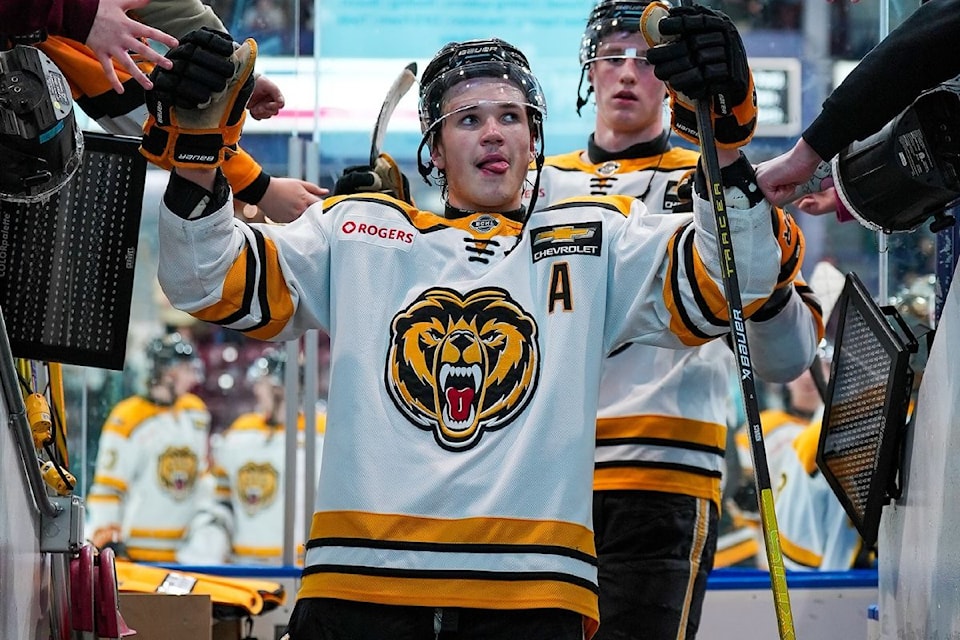The British Columbia Hockey League (BCHL) is undergoing major changes that are shaping hockey in Victoria and throughout British Columbia. These shifts are influencing players, teams, and even college hockey in the United States.
The BCHL is in a time of transformation. It recently left Hockey Canada to become independent. New teams from Alberta joined the league. Meanwhile, some longtime teams like the Wenatchee Wild and Merritt Centennials have left. The Penticton Vees are moving to the Western Hockey League (WHL), and there are questions about the future of the Chilliwack Chiefs. Changes in NCAA rules also affect the league’s future.
Last fall, the NCAA removed eligibility limits for players from the Canadian Hockey League (CHL). This change means players from major junior leagues like the WHL can now play college hockey in the U.S. without losing eligibility. This levels the playing field for athletes choosing between leagues.
Jesse Adamson, BCHL’s communications director, said the league expected this change. “We knew this was coming, so we prepared for it,” he said.
Before, young players had to decide: join a major junior league like the WHL and lose NCAA college eligibility, or play in leagues like the BCHL and keep that option open. Now, this choice no longer depends on eligibility rules. Instead, players will choose the league that best helps them reach higher levels in hockey.
The BCHL is focusing on being a top choice for student-athletes. The league plans to build stronger ties with colleges and universities. “We have exciting academic programs coming to help players succeed on ice and in school,” Adamson said. “Education is what makes us different.”
Since leaving Hockey Canada in June 2023, the BCHL has gained more freedom. It can recruit players more easily, host events, and build partnerships. For example, the league works closely with the Vancouver Island Junior Hockey League (VIJHL).
However, the league has faced challenges. The Wenatchee Wild, the league’s only American team, left in 2023-24 to join the WHL. The Merritt Centennials, the BCHL’s oldest team, moved to the Kootenay International Junior Hockey League (KIJHL) for the 2024-25 season.
The Penticton Vees are still in the BCHL but plan to move to the WHL. Investors are ready to cover the WHL expansion fee. The Vees will not play in the 2025-26 season while the league looks for the best market to bring them back in 2026-27. Adamson said they want a strong, lasting home for the team, not just a quick replacement.
Chilliwack’s future in the BCHL is less certain. The city is exploring a WHL team, but the Chilliwack Chiefs are committed to the BCHL for now. The city took control of the arena in May, which lets them invite any tenant. The Chiefs were not involved in the WHL application. Adamson explained, “This was done by the city without the Chiefs.”
The Chiefs will play as usual in 2025-26. But if a WHL team moves into the Chilliwack Coliseum for 2026-27, the BCHL might have to find a new home for the Chiefs.
On the bright side, the BCHL welcomed five teams from the Alberta Junior Hockey League in February 2024. These teams include the Blackfalds Bulldogs, Brooks Bandits, Okotoks Oilers, Sherwood Park Crusaders, and Spruce Grove Saints. The Brooks Bandits won the BCHL championship in their first season.
With these additions, the BCHL will have 20 teams for the 2025-26 season. The teams are divided into four divisions with five teams each. Four teams from each division will make the playoffs.
The Island Division remains one of the toughest in the league. It includes the Victoria Grizzlies, Cowichan Valley Capitals, Nanaimo Clippers, Alberni Valley Bulldogs, and Powell River Kings. Adamson said there might be new teams coming to Vancouver Island soon.
“There could be a new BCHL team on the Island,” he said. Vancouver Island has strong rivalries and is a great hockey area. Two arenas without BCHL teams could be good homes: the Comox Valley Sports Centre with 1,400 seats and the Rod Brind’Amour Arena in Campbell River, which holds 1,100 fans. Both currently host VIJHL teams, which might influence future decisions.
These changes show the BCHL is shaping the future of hockey in British Columbia. The league is adapting to new rules and opportunities while working to keep hockey strong in local communities.

